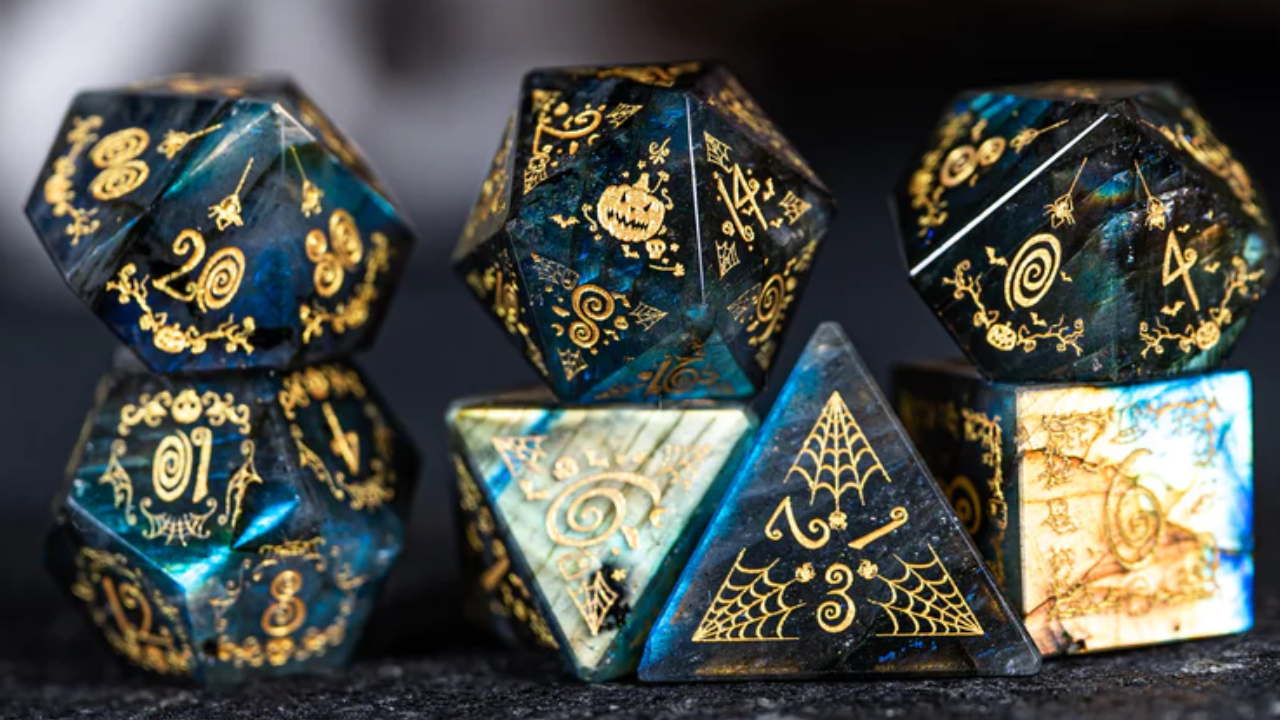Many different elements are needed to play Dungeons & Dragons. D&D sourcebooks provide maps, multiple campaigns, and rules. To keep track of character positions, mini-figure models can be placed on real or digital maps. To make checks and deal damage while playing, you need sets of dice. Collecting several of these D&D accessories is enjoyable, especially the uncommon dice.
People who are unfamiliar with D&D might ask why players accumulate so many different dice sets when one set would be plenty for every adventure. However, having numerous sets is beneficial for several reasons. D&D dice come in seven-piece sets. The D20, which has come to be recognized as a common symbol of D&D gaming, will be familiar to many.
All six types of dice, as well as a D10 for role percentages, are usually included in a typical dnd dice set. While the D4 and D6 are frequently used to roll damage during combat, the D20 is frequently used for D&D actions like gazing about a room or attempting to rob a stranger in a bar.
How Many Dice Do You Need For DnD?
To play D&D, whether you're the DM or a player, you need at least a 7-dice set. Each of the seven intriguingly shaped dice in this set has a different number of sides or numbers and is used for a different part of the game. Each die has a number on it that corresponds to the number of sides it has. "Percentile" dice are also included in certain sets. To roll numbers between 1 and 100, these D10s are combined with regular D10s.
Double-digit markings on the die face, such as 20 or 30, can be used to identify them. One set of seven dice is all you need to begin playing D&D, but many players like to have numerous sets or multiples of a particular set of dice so they can roll more than one at once. For instance, damage rolls for assaults commonly require many dice, such as 3D6 or 2D8, so rolling all of these at once is simpler and typically more enjoyable than repeatedly rolling a single die.
Factors to Consider During the Selection of DnD Dice Set
You must thoroughly decide what qualities are vital to you before selecting a set of dice for your tabletop role-playing game adventures. The ideal gaming dice for you and your companions will likely differ.
Some people would rather have a set of dice that are exceptionally gorgeous and wouldn't give a hoot if the roll accuracy wasn't particularly high—until they had a string of unfavorable rolls. While some people prefer interesting-looking dice, others are quite the opposite and prefer accurate and fair dice. The necessary factors that you need to consider are listed below:
Fairness and Accuracy
When addressing fairness and accuracy in dice games, what is meant is the genuine randomness of a dice roll. The most dedicated players are sincere in their search for random results. The only outcomes that can be considered random are those that are generated by an impartial, precise die. This randomness in our role-playing game experiences keeps us D&D players on our toes and generates some amazing stories.
Readability
It will be simpler for everyone if there are nice, big numbers that are easy to see and have strong contrast. This is especially useful for preventing any dubious rolls since everyone can see the number of sides it falls on right away. An easily accessible dice set will be valued through all.
Style or Looks of Dice
You should have no trouble finding a set in your favorite color because there are so many different styles and colors to pick from. Solid colors and clear or translucent sets are typically more accurate. Sets of opaque dice of multiple colors may be less accurate overall. Stick with sets made of solid metal, painted, or translucent materials if you want a spectacular set of dice to display but still want to be sure they are correct. Although these will be more consistently accurate, the painted die won't last as long.
Quality and Size
D&D standard dice come in a variety of sizes. Decide if you prefer smaller or larger dice. A player may favor the weight and feel of metal dice, while another may prefer the smoothness of plastic or resin. On the dice, look for well-made, regularly spaced, well-painted, or engraved numbers. Verify the balance to make sure the rolling is fair.
Final Words
You should take into account several factors when buying a Dungeons & Dragons (D&D) dice set to make sure it meets your preferences and game needs. By selecting the right D&D dice set, you may reflect your individuality and playing preferences as a player and enhance your gaming experience. Think about these things.

